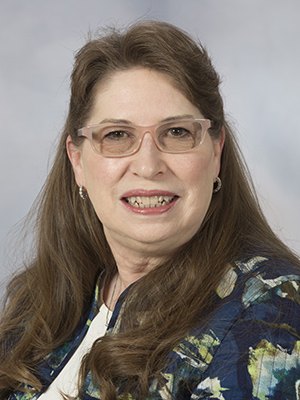Advance health care directives avoid uncertainty – for everyone
Like most people, you probably haven’t completed an advance health care directive; that is certainly your right, and it’s even understandable.
Who wants to dwell on the prospect of their own incapacitation? But that’s why directives exist, these written, legal instructions stating your preferences for medical care if you aren’t able to make decisions for yourself.

Still, consider this: Advance care planning is not just about you; it’s also about the people who mean the most to you, said Dr. Keith Mansel, UMMC professor of medicine and director of Palliative and Supportive Care Services.
Because the document states 1. your wishes for care – how far to go to prolong your life – and 2. names your surrogate, the person with your medical power of attorney, someone to make those decisions for you if you can’t – it will relieve your relatives of a burden, and perhaps avoid a family rift.
“The majority of people in the palliative care world say we need these directives mainly for naming the surrogate,” Mansel said. “If you don’t have one, the state will follow a hierarchy from a list of the closest living family members.” State law does not recognize a legal domestic partner, Mansel said.

Sue Ann Meng, a licensed social worker with the UMMC Memory Impairment and Neurodegenerative Dementia (MIND) Center, offers a for-instance: “Let’s say you’re an 80-year old mother who’s debilitated and has six adult children.
“The law in Mississippi says they have to come to a majority agreement about your care. But if you have already named a child as your surrogate, or spokesperson, you don’t have to go through all the angst of everybody getting on the same page.”
The other major part of an advance directive is the so-called “living will,” which expresses what’s important to you when it comes to quality of life, including your view of palliative and hospice care. Things to consider: What if I catch a fatal disease? What if I suffer a mortal injury? How far am I willing to go to prolong my life?
Vital questions, but the percentage of hospital patients who sign an AD is low and varies by region, “from a few percentage points up to about 25 percent,” Mansel said.
“But we believe it’s important for you write those decisions down with your surrogate,” Mansel said. “With that accomplished, and in consultation with your medical team, we can make joint decisions about your care.”
In Mississippi, the law requires that an AD be notarized or that there are two witnesses at the signing. Notary publics are available in the Medical Center.
“A signed AD can be used at any medical facility in the state,” Mansel said. UMMC has created and made available an AD on its website.
“It was set up to be easily understood,” Meng said.
Studies have shown that, in the throes of a serious illness, people change their AD’s about one-third of the time, Mansel said. They may also change it when circumstances change, such as the pending birth of a grandchild, an event they’d like to stick around for.
“But the directive is not something that’s just for older people,” Meng said. “Anyone can have an accident or life-threatening illness at any age.”
Although an AD is scanned into your patient record, Mansel recommends that you give a copy to your primary care doctor and one to your family.
Whatever you do with it, Meng said, “I’ll tell your family members, ‘this is really a gift of love to you.’”
— — —
Find more details here.
The above article appears in CONSULT, UMMC’s monthly e-newsletter sharing news about cutting-edge clinical and health science education advances and innovative biomedical research at the Medical Center and giving you tips and suggestions on how you and the people you love can live a healthier life. Click here and enter your email address to receive CONSULT free of charge. You may cancel at any time.



